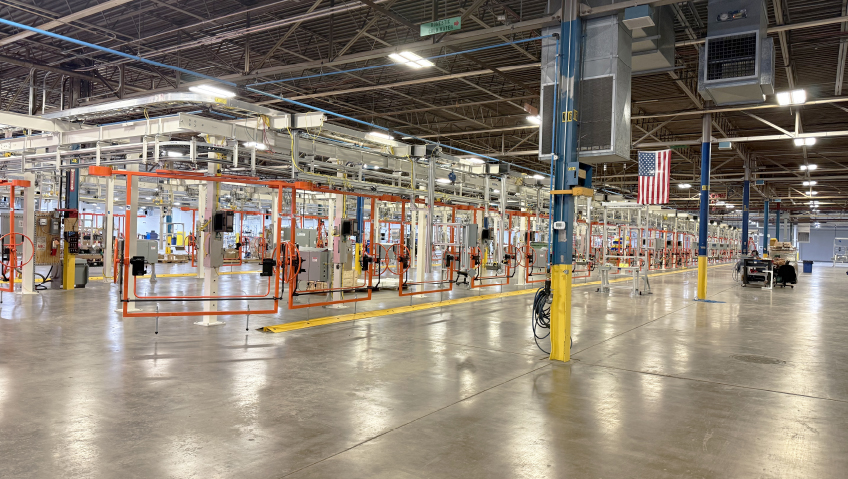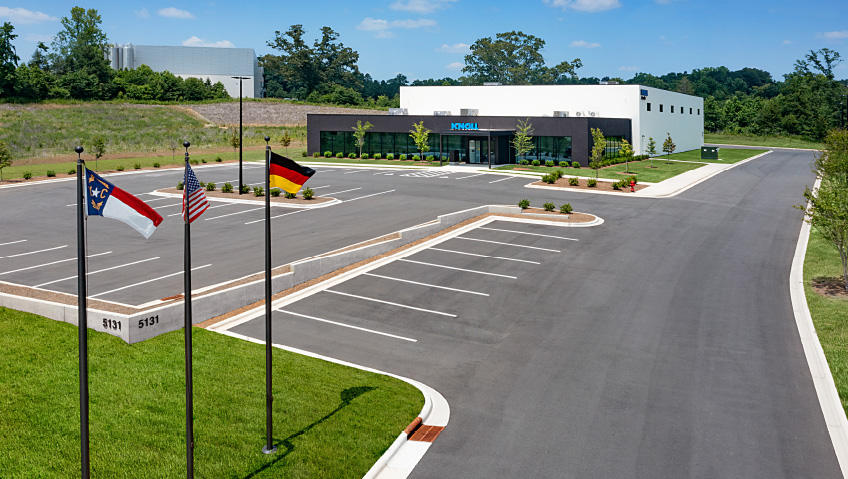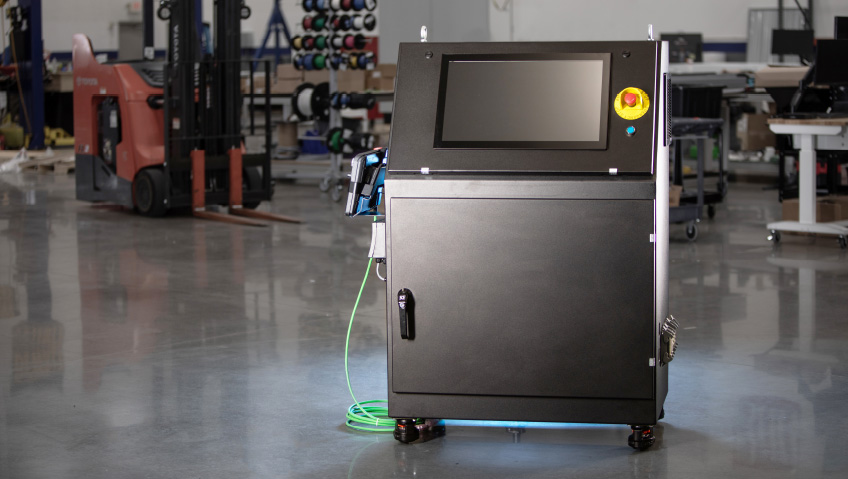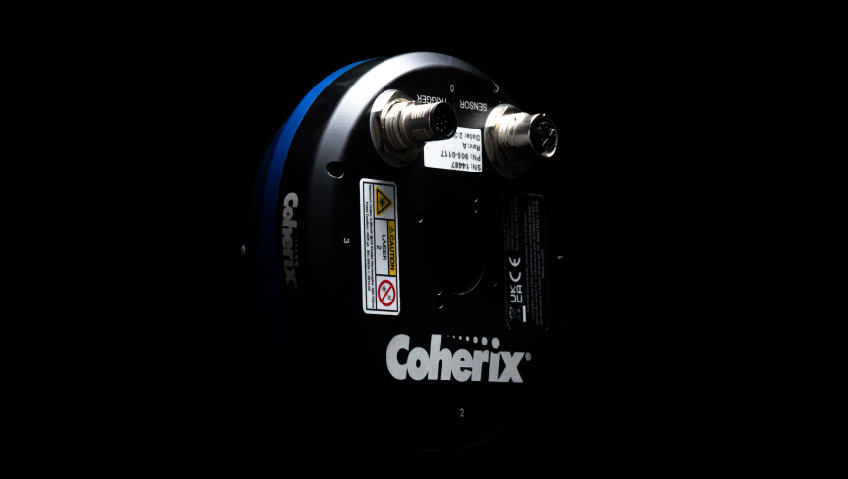If anyone knows machine building and automation inside and out, it is Tim Tate. Long before becoming president at Edgewater Automation, Tate built a solid foundation in machine tool technology and gained hands-on experience as a journeyman machine builder, becoming proficient in reading blueprints and schematics.
Tim Tate’s journey in the manufacturing and automation industry is a testament to hard work, hands-on experience, and leadership growth. Starting his career straight out of high school in the mid-1990s as a shipping and receiving helper, Tate steadily rose through the ranks by mastering the trade from the ground up. He completed an apprenticeship and became a journeyman machine builder, gaining a deep understanding of mechanical systems, precision tooling, and automation integration.
His transition from the shop floor to leadership roles reflects both technical expertise and strategic vision. After serving as a Project Manager, where he led complex automation builds and cross-functional teams, he was promoted to Director of Manufacturing, overseeing large-scale production operations and continuous improvement initiatives. As Managing Director, Tate helped shape long-term business strategies, drive innovation, and expand organizational capabilities.
In January 2024, after nearly three decades of hands-on and executive experience, Tate was appointed President of Edgewater Automation, bringing his full-circle knowledge of the industry to lead the company into its next phase of growth.
Founded in 2001, Edgewater Automation (an ISO 9001:2015–certified designer and builder) has grown to become a global automation systems expert. Edgewater’s expertise encompasses system design and building, including concept creation, engineering, fabrication, integration, installation, and support. Working with customers in electronics, life sciences, automotive, transportation, general manufacturing, and other sectors, Edgewater’s automation solutions help ensure success for customers.
Since Edgewater’s founding, its forward-thinking, strategic decisions have resulted in almost 25 years of growth. Starting with a handful of employees, Edgewater has grown to about 250 people in five locations across North America. This has meant seeking out the best and brightest talent and encouraging professional development while maintaining work-life balance. These factors have made Edgewater Automation an employer of choice.
“Since stepping into the role of President, I’ve focused on reinforcing our foundation while strategically investing in future growth,” says Tate. “We’ve made targeted investments in advanced manufacturing technologies, enhancing our project management systems, and expanding our engineering talent pool to better meet the demands of an evolving automation landscape,” he tells us.
“We’ve modernized our internal processes, from improving cross-functional collaboration tools to increasing support for employee development and training. These efforts are all aimed at improving agility, quality, and our ability to deliver exceptional value to customers.”
Through its multiple locations across Michigan and South Carolina, Edgewater provides clients with a range of factory automation systems. Highly experienced in many markets—including automotive and transportation, logistics, life sciences, electronics, and general manufacturing—Edgewater’s core competencies encompass assembly, testing, inspection, data acquisition, and material handling. From fabrication and simulation to robotic integration, mechanical and electrical design, and more, Edgewater’s team handles all customer needs.
In addition to automation, Edgewater offers robust in-house manufacturing and fabrication capabilities. This allows the company to maintain full control over quality, timing, and customization throughout the entire build process, vertical integration which strengthens Edgewater’s ability to quickly prototype, iterate, and deliver turnkey systems to meet tight deadlines and exacting standards. And by combining cutting-edge robotics, vision systems, and advanced controls, Edgewater’s team ensures its solutions are both innovative and scalable. As Tate says, “Our strength lies in our ability to integrate these technologies into seamless automation systems that drive efficiency and improve product quality for our customers.”
Along with diverse other capabilities, Edgewater Automatic is an A3 Certified Robot Integrator and a FANUC Authorized System Integrator (Level 5)—one of the world’s largest and most prominent robotic companies. With its origins in the mid-1950s, FANUC remains a leader in productivity-enhancing factory automation solutions.
Edgewater also remains a long-time member of the Association for Manufacturing Technology (AMT), a respected trade association with roots going back almost 125 years.
To meet the needs of its ever-expanding customer base, Edgewater Automation continues to grow. Receiving praise from clients and the broader industry, Edgewater was named one of the “Top 50 Companies to Watch” by the State of Michigan just a few years after it was founded. To accommodate its growth, the company added a third automation design, manufacturing, and integration facility (in Buchanan, Michigan) five years ago. Around the same time, Edgewater was named one of the “20 Best Places to Work in Southwest Michigan” by Moody on the Market.
Currently operating out of five facilities in Michigan and South Carolina, every Edgewater site is strategically positioned to serve key markets and provide localized support to its customers. “We’ve recently expanded one of our St. Joseph, Michigan facilities with an additional 120,000-plus square feet of build space—a major investment that reflects our commitment to growth, innovation, and customer success,” says Tate. The new space allows the company to streamline its build process, scale up production, and take on even more complex, high-volume projects.
“It’s not just about growing bigger; it’s about building smarter, faster, and more efficiently to meet the evolving needs of our customers. As we look to the future, our goal is to grow responsibly while maintaining the high level of customization and customer service that sets Edgewater apart,” Tate says.
He says that at present, Edgewater is excited by growth in the electric vehicle (EV) market. “We’ve partnered with several major OEMs and tier-one suppliers to develop automation solutions for EV battery assembly, power electronics, and drivetrain components.”
The company is also seeing increasing demand in the life sciences sector, where precision and traceability are critical. “Our experience in integrating sophisticated inspection and test systems has been instrumental in meeting the stringent quality standards in that space,” he adds. “These sectors—EV and life sciences—represent significant growth opportunities for us moving forward.”
From the early days to the present, Edgewater Automation has received praise from clients and recognition for its work, and these awards serve as a reflection of the hard work and dedication of the Edgewater team, says Tate.
Most recently, the company was recognized by FANUC America as a finalist in their Innovative System of the Year for 2025. “We were also proud to win the 2024 New Product Award at The ASSEMBLY Show. This was for innovation in the ‘Assembly Machines & Systems’ category with our high-speed assembly system with vision-guided SCARA robots,” says Tate. “This award was especially meaningful, as it was selected by the editors of ASSEMBLY Magazine and voted on by show attendees—industry professionals who understand the impact of leading-edge automation solutions,” he shares.
“These awards are a testament to our commitment to quality, innovation, and customer satisfaction, and they motivate us to keep pushing the boundaries of what’s possible in automation.”






